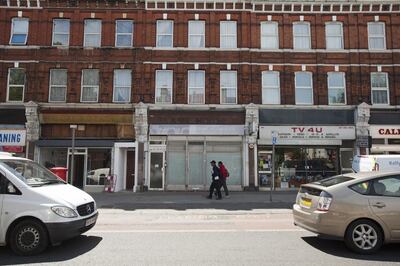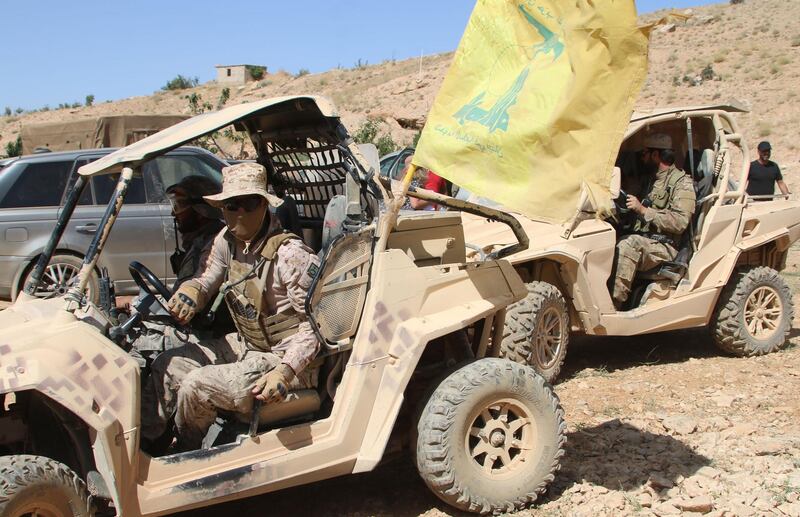British foreign policy in the Middle East has disastrously fudged its response to Islamist extremism for decades, facilitating the spread of Iranian influence, growth of Hizbollah and rise of the Muslim Brotherhood, a former British ambassador to Riyadh said on Monday.
Sir John Jenkins, who was ambassador in Riyadh until 2015, applauded the policy direction taken by Mohammed bin Salman, the Saudi crown prince, as crucial to the future of the region. He added that criticism of the boycott of Qatar over its support for extremism and protection of terrorists was “both patronising and misconceived” in light of the consequences of Doha’s policies.
Western policies had handed Lebanon and Iraq to Iran’s allies, said Sir John, who also served as ambassador in Damascus and Baghdad.
“What has empowered Iran has been 14 years of permissive US and European policies in Iraq, Lebanon and Syria, where we have collectively made an impressive military effort from time to time but without any clear policy goal,” he said. “We let the Iranians colonise the Iraqi state. We have let Hizbollah — one of the major potential beneficiaries of the Qatari ransom deal in Iraq earlier this year — transform itself from a regional defence force with a criminal wing into a formidable and mobile transnational praetorian force — with a criminal wing."
Elaborating on recent developments in a speech to the Policy Exchange think tank, Sir John said Hizbollah was directly targeting the break-up of Saudi Arabia. “[Its] leaders regularly ignore the Lebanese government and threaten Saudi Arabia with partition,” he said.
Despite the US-led coalition deploying more than 100,000 troops in Iraq, the West had allowed Iran to grab the spoils of the 2010 election by not taking a stand against Nouri Al Maliki, who came second. “We let Maliki, not an Iranian puppet but someone whose interests coincided with theirs and who is now a cheerleader for them inside Iraq, steal the 2010 elections," Sir John said.
“We are no nearer finding a sustainable policy response to a decade of Iranian advances through the institutions, territories and command structures of the Levant, plus a campaign of destabilisation on the cheap in Bahrain and Yemen.”
Blaming the Qatar crisis for divisions in the region ignored the history of broken agreements that had inspired the reaction by half of the nations in the GCC bloc, he said.
“The crisis arises out of the logic of five decades of Gulf socio-economic development, the evolution of different politically legitimating discourses and the urgent challenge of all varieties of political Islamism. It reflects important emerging differences in the political sociology of the Gulf.”
Having urged Saudi Arabia to take steps to modernise its economy and rebalance structures away from reliance on the carbon economy, it was illogical now for western politicians to worry about the new ambitious plans.

“We should bear in mind that the reform programme Prince Mohammed bin Salman has promoted in KSA is precisely the sort of socio-economic reform we have consistently urged upon the Kingdom and its success matters to us more than ever: failure is not an option.”
As the author of an never-published report on the Muslim Brotherhood as a political movement in Britain and around the world, Sir John said policy makers must wake up to its true nature.
“The Muslim Brotherhood gives little space to the tolerance, choice and individual freedoms we claim to value. It has no commitment to democratic choice as the fundamental expression of a political community,” he said.
“It rejects what we consider to be the self-evident legal equality of individuals regardless of gender or religion. It is anti-Semitic and homophobic; its approach to education and societal cohesion is unlikely to promote inclusivity; it seeks power first yet its understanding of how to run modern states is fatally flawed."
The challenge it poses to countries like Britain is how to weed out insidious and reactionary political forces while defending traditional freedoms.
“How we respond to the challenge of 21st-century post-modernity and its deformations is as fundamental for us as it is for nationalists, leftists, Trumpians or Islamists. This demands an ideological self-awareness and confidence that seems in short supply.”
The former ambassador's comments came amid the stirrings of a political revolt among Conservative MPs against the government’s friendly overtures to Iran.
Robert Jenrick, a MP and aide to the senior cabinet minister Amber Rudd, said hopes should be exhausted that Iran would enter the international community and liberalise following the 2015 deal to drop sanctions for nuclear concessions. Referring to the detention of British citizen Nazanin Zaghari-Ratcliffe and Tehran’s demands for repayment of a £400m tranche of a sequestered arms deal, Mr Jenrick called for a reassessment of Iran.
"The case of Nazanin Zaghari-Ratcliffe, the British lady held in Iran for no good reason, has finally captured parliament and the nation's attention and forced us to examine how we hold Iran to account for its actions," he wrote in the Daily Telegraph newspaper. "Whether it be the treatment of a British citizen abroad or the backing of Shia groups from the Gulf to the Red Sea, Iran continues to challenge and to destabilise. Saudi Arabia and others build their response and a storm gathers in the region.
“Westminster is waking up to the reality that elements in Iran have meant us harm for some time and that the nuclear deal we supported is silent upon much of it.”





